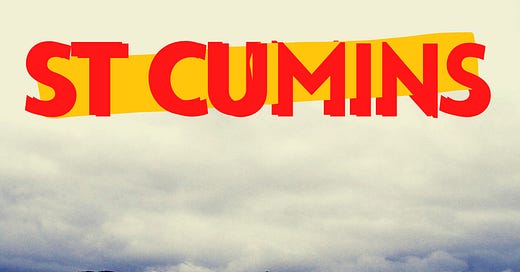This week’s Coracle is Part two of what you recieved a fortnight ago - this is a collection of prayers in Scot’s, most notably the Rosary which you will find in audio and video form. We are also re-publishing Tobar Mhoire which is a look at Scotland’s affections for Mary; free to download prayer cards which include a Scottish litany, the Apostles Creed, Lord’s Prayer and of course all the rest of the prayers around the Rosary. I will put links below for you to look at but you can also just go onto the website here. Some of you will remember we have published some of this before but with the addition of the prayer cards, and the fact that many more people have joined since then we thought it worthwhile to do it again.
I really hope you have a look at it all and try it out. I also put the links below for some of February’s Saints, my favourite being St Ronan who dealt with the Deil! Before you click on the links have a read of the Translator’s Notes below.
Notes for our Mither
I was inspired to re-translate some of our traditional Catholic prayers and devotions into Scots (and indeed pen some new ones in the old style) after drawing a blank when trying to root out original pre-reformation ones for my own use. To date, the only Scots prayers and bible translations I’ve come across are post-reformation Presbyterian (although they do make reference to older Scots Catholic ones!) or indeed very modern 20th century versions of the ‘Our Father’ in a style I must admit I wasn’t particularly endeared to.
Rather than merely utilise the ever decreasing remnant of standardised ‘modern’ Scots with which we have been left, I took a conscious decision to give glory to God once more in the tongue of our forbearers in pre-1700’s Scots (as best I could!) to try to reclaim some of our Scots Catholic religious and cultural heritage.
My aim was to breathe new life into some of our most cherished and efficacious Catholic devotions, which would have once been widespread (but sadly now lost) into a form that would be traditional, liturgically & linguistically respectful, without losing any of our Catholic theology and yet still be recognisable today! All so, that flowers could once again be placed at the feet of Jesus and Mary in the familiar tongue of our once Catholic nation; as a loving reminder of the steadfast faith we once held and as a petition for our re-conversion.
I freely admit to having no linguistic training (!) and that given the many centuries where spellings were un-standardised and turns of phrase / pronunciations differed with dialect; that my word choice has been purely subjective, based upon my own tastes and knowledge of the dialect within which I grew up. Despite my best efforts, I’m sure I’ve undoubtedly fallen short in terms of mixed epochs/dialects given I’m not an expert in either! However, I am much more appreciative of the beauty, diversity and intricacy of our language than I ever was before and can now sympathize and appreciate the many years of debates our liturgists had to endure when translating from Latin or Greek, often for the use of one solitary word! May I take this opportunity to belatedly thank them! ;)
Given they were written initially for my own devotional prayer-life to re-claim a little of my Scots Catholic heritage and offer it back to Jesus, I’m sure that like anything else, they won’t appeal to everyone since peoples tastes differ substantially. But that’s ok! If there’s anything our Scot’s Leid exemplifies it’s that’s there’s room for diversity given there are quite literally infinite word variations that could have been utilised. Meanwhile, I'm more than happy to share what will be an ever growing collection (albeit by my own amateur efforts) with anyone who would like to use them and hope that they bring a smile to many faces not least our Blessed Lord’s!
For anyone who feels inclined to dig deeper into our rich heritage, the main sources I used for the translations were the Dictionaries of the Scots Language (pre 1700’s) along with The Concise Scots Dictionary (Editor in chief: Mairi Robinson 1985) & lexilogos.com/english/scots_dictionary.htm




